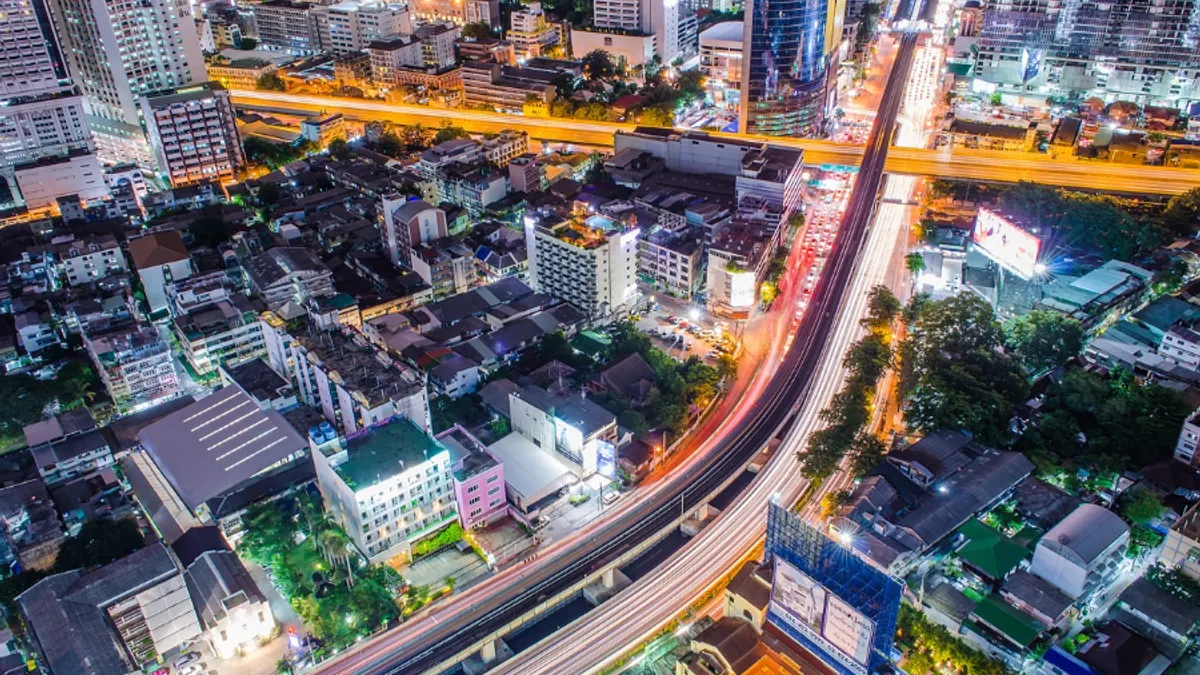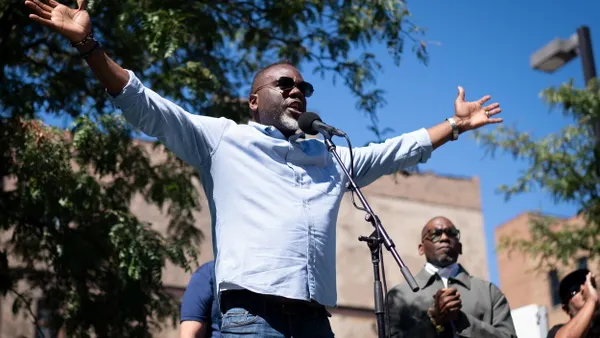Dive Brief:
- New York is the most vulnerable city to the financial, economic, health and social effects of COVID-19, according to new research from Clever Real Estate.
- San Francisco, Washington, DC, Detroit and Miami round out the top five cities based on their health, financial, economic and social vulnerabilities. Meanwhile, Fayetteville, NC; Norman, OK; Amarillo, TX; Gainesville, FL; and Raleigh, NC ranked as the least vulnerable to COVID-19 based on those four combined factors.
- The report notes this research is not indicative of how COVID-19 will impact these cities, just of the existing vulnerabilities to COVID-19.
Dive Insight:
The research ranked cities on their vulnerabilities to the four separate categories of health, financial, social and economic, then combined that into a total average score.
"We were particularly interested in developing a metric that characterized a city's vulnerability based on factors that would impact the rate of spread of the virus throughout the city and people's ability to socially distance and to afford care from a personal finance perspective," Clever Real Estate Research Associate Francesca Ortegren told Smart Cities Dive via email.
New York, San Francisco and Philadelphia ranked as the most vulnerable specifically in terms of health risks. Larger cities are more vulnerable in terms of health due to high population density and higher-use of public transportation, according to the report. For example, about 61% percent of New York City residents commute using public transportation compared to less than 0.1% of residents from Amarillo, TX, which ranked as one of the least vulnerable cities in terms of health.
The report also weighed financial vulnerabilities based on factors like the availability of paid sick leave, the percentage of people without health insurance and the number of people living in poverty. Miami, Detroit, Laredo, TX, Cleveland and Dayton, OH were ranked as the most financially vulnerable, whereas San Francisco, Seattle and Scottsdale, AZ were ranked as the least financially vulnerable.
Economic vulnerability was defined based on the pandemic's potential long-term effects on the economy, which was factored by the amount of debt the city holds coupled with a resident’s ability to participate in the economy. Washington, DC; San Francisco; Denver; St. Louis and Westminster, CO ranked as the most economically vulnerable. Bakersfield, CA; Visalia, CA and Amarillo, TX ranked as the least economically vulnerable.
Lastly, the report factored social vulnerability by weighing the city’s level of civic engagement and "general innovation capabilities." Elizabeth, NJ; Laredo, TX; Norfolk, VA; Salinas, CA and El Paso, TX ranked as the most socially vulnerable. Whereas, San Jose, CA; Burlington, VT and Knoxville, TN ranked as the least socially vulnerable.
"City leaders should always be ready for a disaster, both economically and in terms of building trust and community among local residents," Ortegren said. "People are more likely to take socially responsible steps when they’re concerned for their community, and I think building standards toward that is important in the long term."
To keep up with all of our coverage on how the new coronavirus is impacting U.S. cities, visit our daily tracker.













